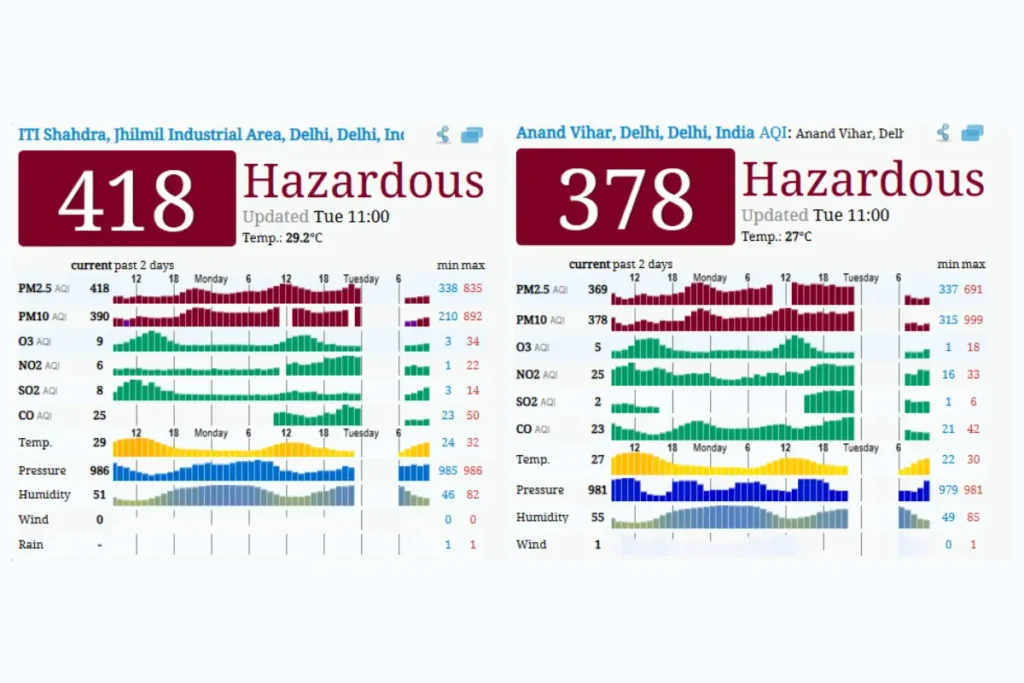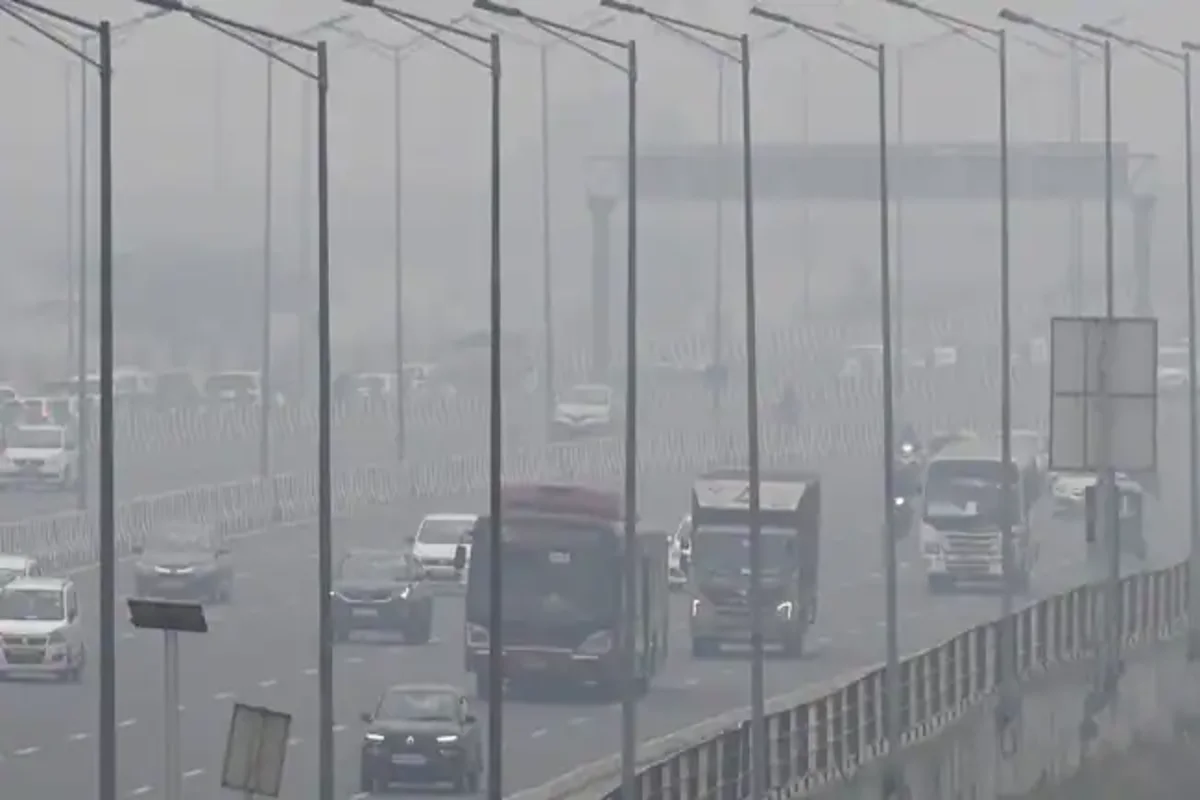Delhi Air Pollution: Dense smog in northern states has pushed the Air Quality Index (AQI) to severe and hazardous levels. With Delhi NCR air pollution worsening, many people are facing severe health issues, particularly those with pre-existing illnesses who are more vulnerable. Despite measures like the implementation of GRAP-4 and school closures, the situation remains dire. As air pollution levels continue to rise, a critical question arises: Can rising pollution levels result in premature deaths? And what are the ill effects of smog on health and the environment? Let’s explore these pressing concerns.
Rising Delhi NCR Air Pollution

Several areas in Delhi NCR are experiencing dense fog with AQI levels breaching severe limits. Reports from Aqicn on Tuesday, November 19, highlight alarming figures: ITI Shahdara and Jhilmil Industrial Area recorded an AQI of 418 at 11 a.m., while Anand Vihar reported 378. Ghaziabad, according to Aqi.in, ranked third among the most polluted cities globally. With air pollution in Delhi NCR and smog levels reaching dangerous levels, the possibility of premature deaths cannot be ignored.
Premature Deaths: A Dire Consequence of Smog and Air Pollution
Premature deaths refer to fatalities occurring before the average life expectancy of a population. According to the Asian Institute of Medical Sciences (AIMS), long-term exposure to smog can lead to sudden death, particularly among individuals with respiratory and cardiovascular diseases. A 2018 report by the National Institutes of Health (NIH) further confirmed the link between prolonged exposure to pollution and premature deaths, raising alarm over the escalating pollution levels in Delhi NCR.
Key Factors Driving High AQI and Dense Smog
The rising AQI and dense smog in Delhi NCR are driven by several factors, including:
- Industrial Emissions: Significant pollutants from factories.
- Construction Dust: Fine particulate matter from construction activities.
- Vehicle Emissions: A major contributor to smog formation.
- Stubble Burning: Seasonal crop residue burning in nearby states.
- Firecrackers: Post-festival spikes in pollution.
- Weather Conditions: Cooler weather traps pollutants near the ground, creating a thick haze.
Effects of Rising Air Pollution on Health
The rise in air pollution and smog can lead to severe health problems, including:
- Respiratory Issues: Wheezing, coughing, asthma, and lung cancer.
- Cardiovascular Diseases: Increased risk of heart attacks and strokes.
- Eye and Skin Irritation: Burning eyes and skin problems.
- Mental Health Impacts: Headaches and reduced cognitive function.
- Pregnancy Risks: Higher chances of miscarriages.
- Vulnerable Groups: Children and the elderly are particularly at risk.
Effects of Dense Smog and Air Pollution on Environment
Smog and air pollution inflict severe damage on the environment:
- Soil Infertility: Excess nitrogen disrupts soil health.
- UV Blockage: Hampers Vitamin D absorption in plants and animals.
- Animal Health: Difficulty in breathing and fatalities.
- Reduced Visibility: Particulate matter causes haze.
- Crop Damage: Ground-level ozone infects crops like wheat, cotton, and tomatoes.
- Acid Rain: Affects lakes, streams, and the nutrient balance in water bodies.
- Climate Impact: Smog lowers temperatures and alters rainfall patterns, destabilizing ecosystems.
How to Safeguard Against Delhi NCR Air Pollution
Environmental Measures
- Support GRAP-4: Follow government-led pollution control initiatives.
- Reduce Vehicle Use: Opt for carpooling, public transport, or cycling.
- Avoid Stubble Burning: Promote sustainable farming practices.
- Recycle Waste: Minimize waste to curb pollution.
Personal Health Precautions
- Limit Outdoor Activities: Avoid morning and evening walks when AQI is high.
- Care for Vulnerable Groups: Shield children, elderly, and the sick.
- Invest in Air Purifiers: Improve indoor air quality.
- Stay Indoors During Peak Hours: Avoid exposure during early mornings and late evenings.
- Use Indoor Plants: Opt for air-purifying plants like areca palms or snake plants.
- Boost Immunity: Maintain a healthy diet and engage in light indoor exercises.
- Wear Protective Masks: Use high-quality N95 masks outdoors.
Keep watching our YouTube Channel ‘DNP INDIA’. Also, please subscribe and follow us on FACEBOOK, INSTAGRAM, and TWITTER.













Discussion about this post